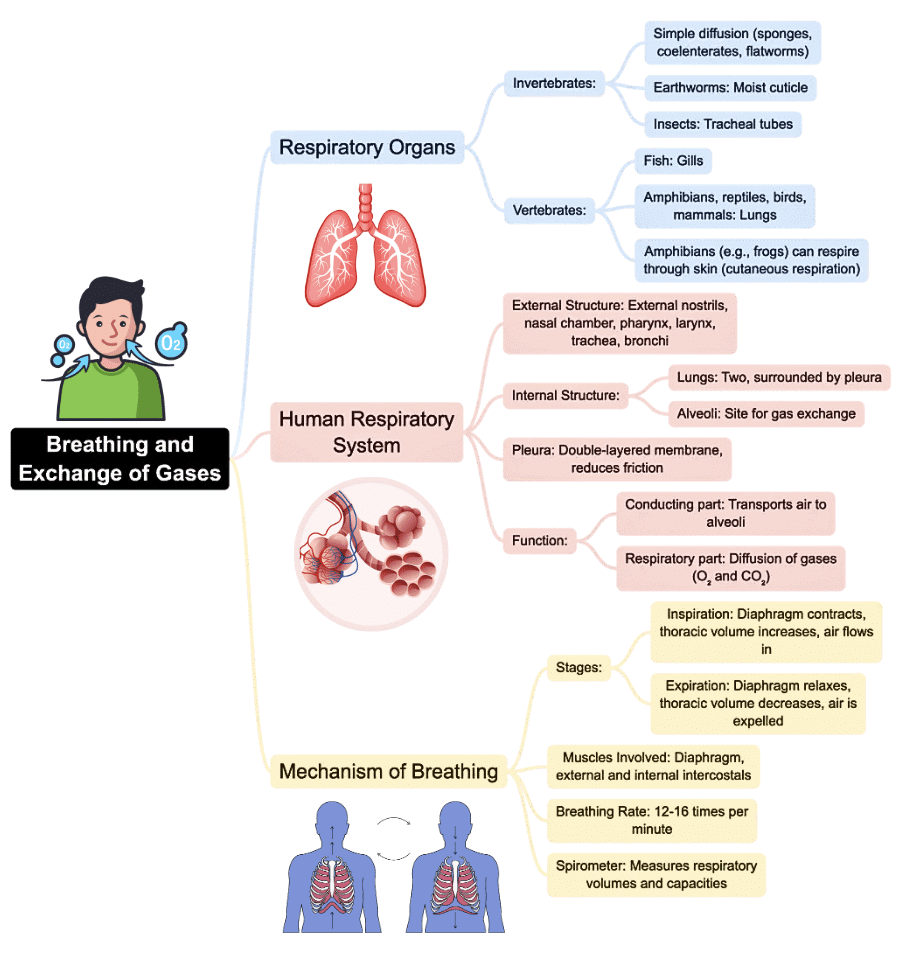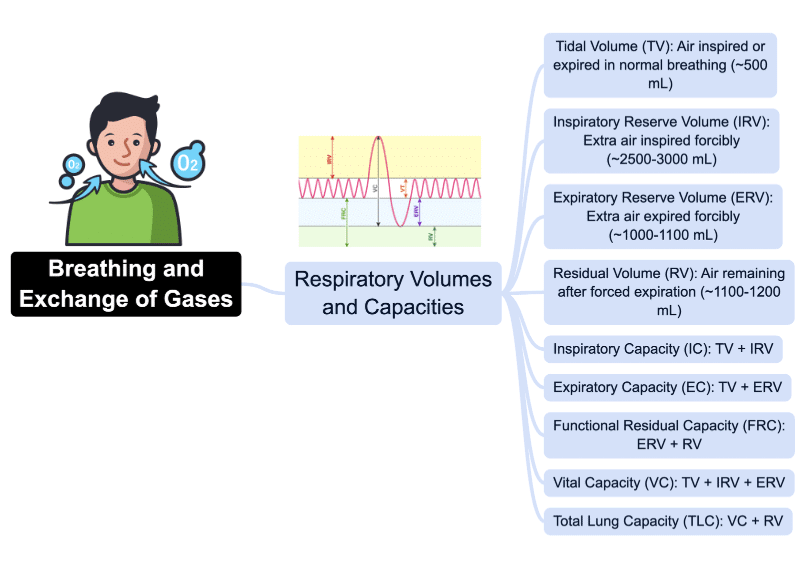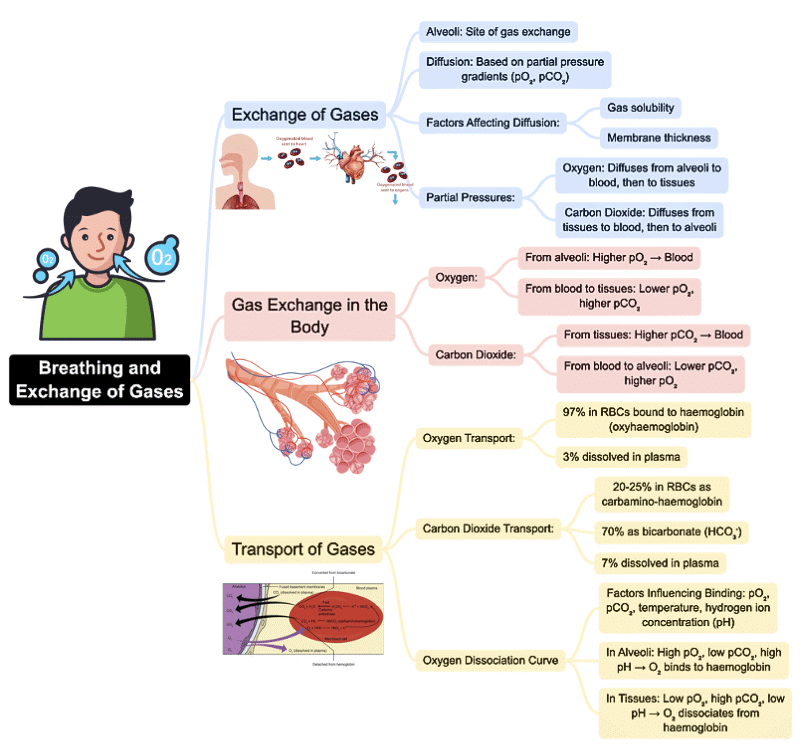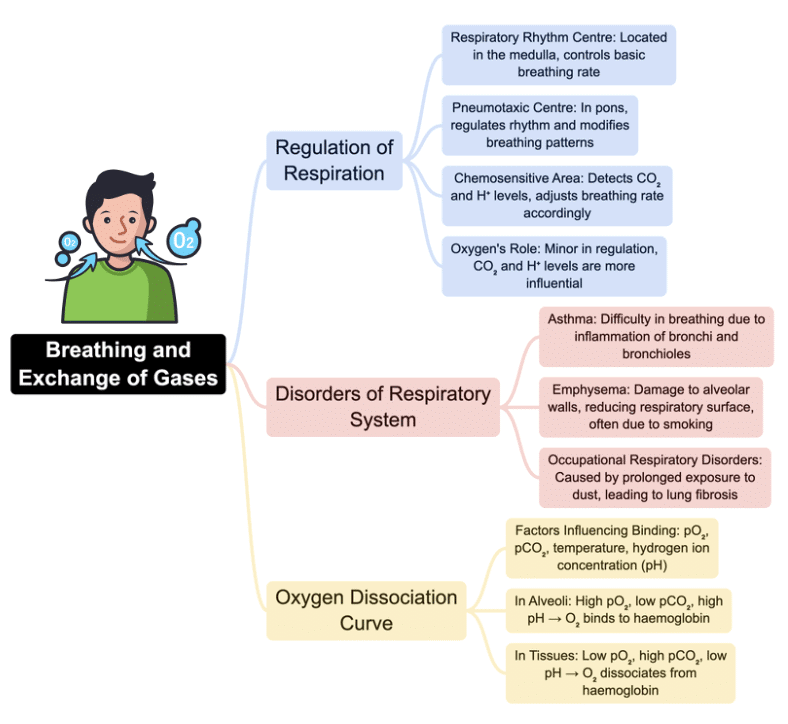Class 11 Exam > Class 11 Notes > Subject-Wise Mind Maps for Class 11 (Science) > Mind Map: Breathing & Exchange of Gases
Mind Map: Breathing & Exchange of Gases | Subject-Wise Mind Maps for Class 11 (Science) PDF Download




The document Mind Map: Breathing & Exchange of Gases | Subject-Wise Mind Maps for Class 11 (Science) is a part of the Class 11 Course Subject-Wise Mind Maps for Class 11 (Science).
All you need of Class 11 at this link: Class 11
FAQs on Mind Map: Breathing & Exchange of Gases - Subject-Wise Mind Maps for Class 11 (Science)
| 1. What is the process of breathing and how does it occur in humans? |  |
Ans.Breathing, or respiration, is the process by which humans inhale oxygen and exhale carbon dioxide. It involves two main phases: inhalation, where the diaphragm contracts and air is drawn into the lungs, and exhalation, where the diaphragm relaxes and air is pushed out of the lungs. This exchange of gases occurs in the alveoli, tiny air sacs in the lungs, where oxygen enters the blood and carbon dioxide is removed.
| 2. Why is gas exchange important for the human body? |  |
Ans.Gas exchange is crucial because it provides oxygen to the body's cells for cellular respiration, which produces energy. At the same time, it removes carbon dioxide, a waste product of metabolism, preventing toxic buildup. This process is essential for maintaining the body's pH balance and overall homeostasis.
| 3. What factors can affect the efficiency of gas exchange in the lungs? |  |
Ans.Factors that can affect the efficiency of gas exchange include respiratory diseases (like asthma or COPD), environmental pollutants, altitude (which lowers oxygen levels), and physical fitness levels. Additionally, the condition of the alveoli and the thickness of the respiratory membrane can impact how effectively gases are exchanged.
| 4. How does the body regulate breathing rates? |  |
Ans.The body regulates breathing rates through the respiratory center located in the brainstem, which responds to changes in carbon dioxide and oxygen levels in the blood. Chemoreceptors detect these changes and signal the body to increase or decrease the rate and depth of breathing to maintain optimal gas exchange and blood pH levels.
| 5. What role do the lungs play in the respiratory system? |  |
Ans.The lungs are the primary organs of the respiratory system, responsible for the exchange of gases. They house the alveoli, where oxygen is absorbed into the bloodstream and carbon dioxide is expelled. The lungs also help filter, warm, and humidify the air we breathe, contributing to overall respiratory health.
Related Searches

















